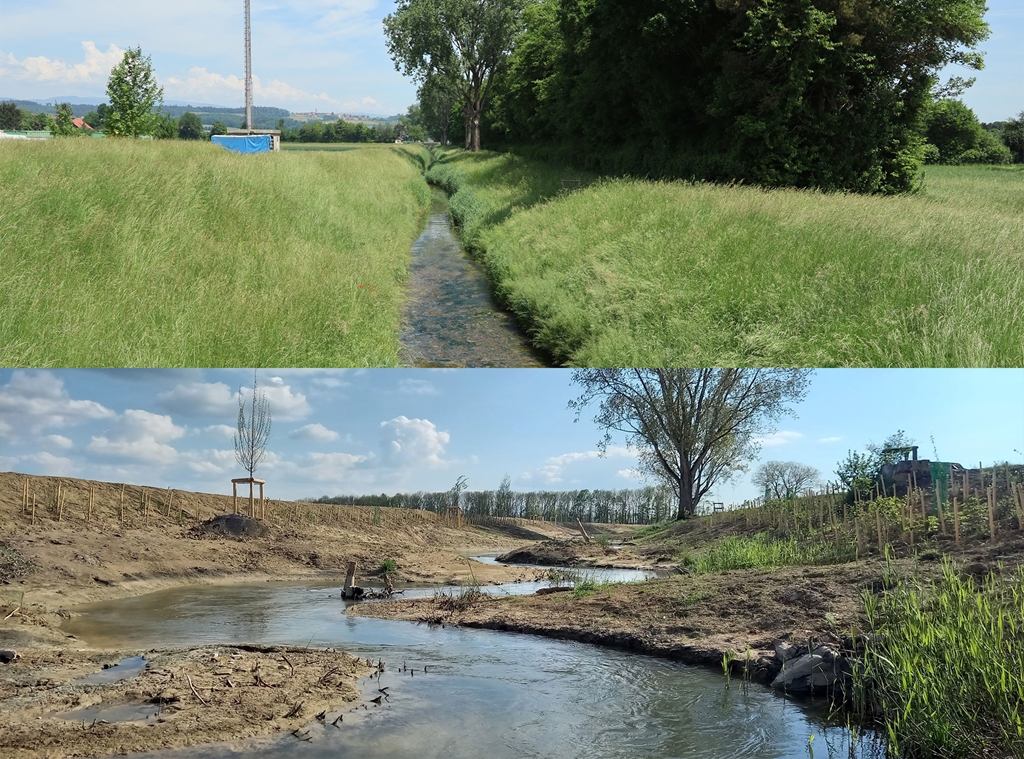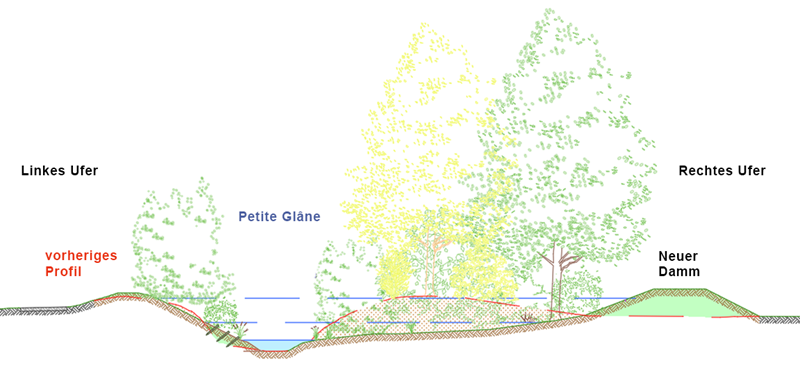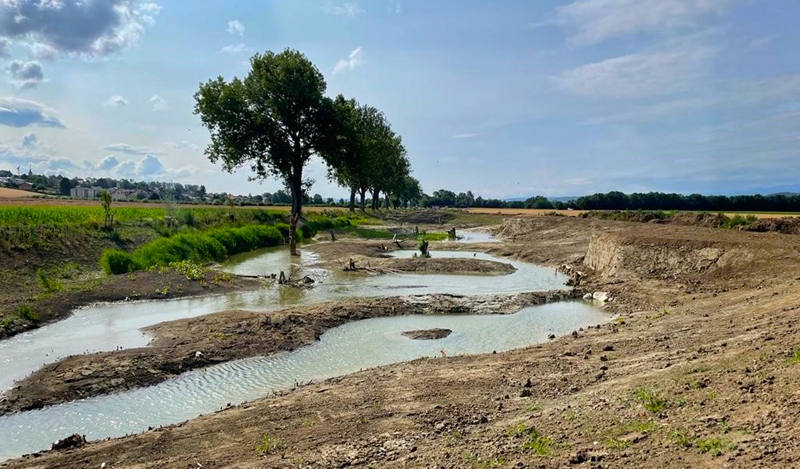The stream Petite Glâne, located near Lake Murten in Switzerland, is coming back to life. On behalf of neighbouring communities and with the support of the cantons of Fribourg and Vaud, CSD has been carrying out the renaturation of the river since 2022. The first phase was completed on schedule on 6 July. Vassilis Venizelos, head of the cantonal department of youth, environment and security of the canton of Vaud, praised the exemplary nature of the project at a press conference at the construction site.
Natural resilience against the consequences of climate change
Restoring ecosystem services, protecting the surrounding space from flooding and reconnecting the population with nature - these are the main objectives of the revitalisation of the Petite Glâne. Watercourses are sensitive environments that are particularly affected by the consequences of climate change such as drought and flooding. At the same time, they are valuable habitats that need to be protected and enhanced in the face of the biodiversity crisis.
Four municipalities along the river and the cantons of Fribourg and Vaud have therefore decided to renaturalise it. The project is supported by the "Association intercommunale pour la révitalisation de la Petite Glâne" (AIRPG) and funded by the Federal Environment Agency (FOEN) and the two cantons. Valuable support is provided by the association "Broye Source de Vie".


Over 6.8 kilometres, the streambed will be revitalised and 30'000 trees and shrubs will be planted
The project, divided into three stages, stretches over 6.8km along the municipalities of Vallon, Missy, Saint-Aubin and Vully-les-Lacs. Work on the first section had started on 12 September 2022 at Saint-Aubin. On a section of 2.3km, the riverbed was widened and revitalised, including the establishment of two real "biodiversity hotspots" along the stretch. At the end of winter, the first trees and bushes were planted, part of the seeding took place in spring. Some finishing touches are still underway, and the riparian planting will be completed in the coming winter.
The second stage, downstream of Vully-les-Lacs, was already started a few weeks ago and will last until spring 2024. CSD was commissioned to carry out the tendering to the companies, the implementation, the construction management as well as the environmental monitoring. The civil engineering and earthworks for the first two stages are being carried out by Grisoni-Zaugg, while BioSaule is responsible for the biological engineering work.
Fulfilment of a childhood dream for Julien Devanthéry, CSD project manager and senior executive
The fact that adaptation to the consequences of climate change and the protection of biodiversity are ultimately only two sides of the same coin was confirmed by Vassilis Venizelos, cantonal councillor of the canton of Vaud, at the press conference to mark the completion of work on the first stage: The project is an example of how natural resources can contribute to the resilience of a landscape.
For the project leader Julien Devanthéry, the project has a very special meaning: the Petite Glâne flows through the village where he was born. For more than 20 years, he has been committed to biodiversity in his native area. "For me, a childhood dream is coming true here," he said about the renaturation during the press conference...